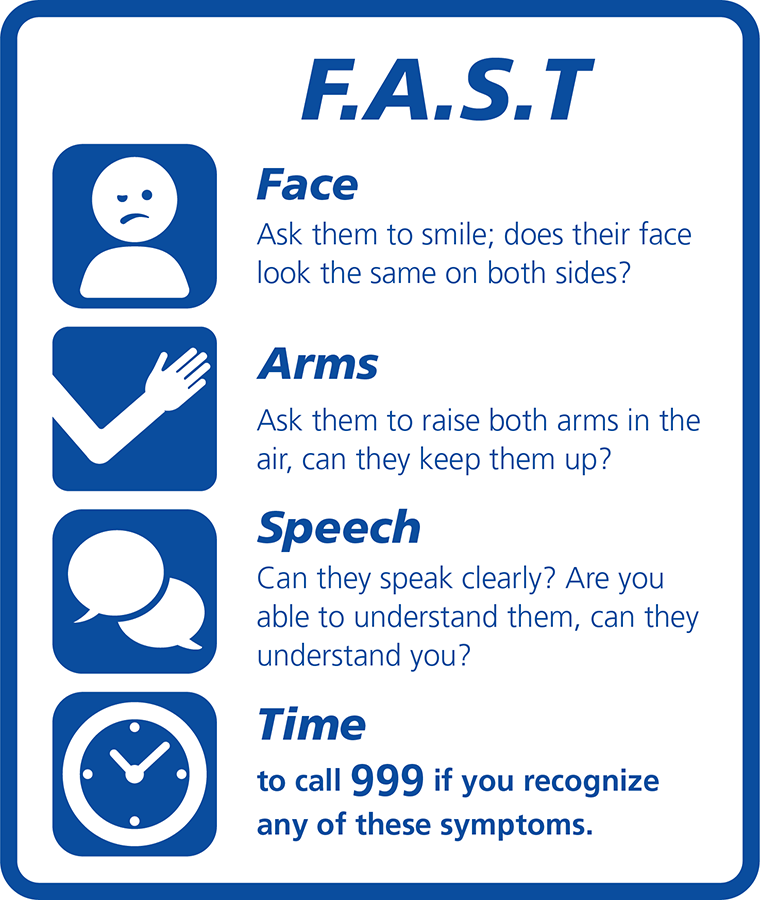Weakness or numbness to one side of the body
Facial droop
Problems with speech
Loss of vision
Problems with balance and co-ordination.

These are risk factors for TIA because they either cause damage to the walls of the blood vessels or cause blood clots to form.
Stop smoking:
Reduce High Blood Pressure:
Reduce Cholesterol:
Diabetes: Is a condition where there is too much glucose in your blood - if not well controlled this can damage the blood vessels and cause them to ‘fur’ up. Your GP can help with diabetes control.
Stress: Stress does not directly cause a TIA or stroke but it can increase the risk of having a TIA or stroke.
Alcohol: Drinking above the recommended level of alcohol (14 units a week) can increase the risk of a TIA or stroke.
Weight: Being overweight is associated with high blood pressure and diabetes. Regular gentle exercise can help with weight loss and help to reduce blood pressure.
Diet and Exercise: It is recommended to eat five portions of fresh fruit or vegetables daily and maintain a healthy overall diet. Regular exercise helps to reduce your risk of having a stroke or heart attack. It is recommended to do at least 150mins of physical activity a week which can include walking, running, cycling, and swimming.
You can return to your normal activities as soon as you feel well enough but you might feel tired following your TIA.
Driving: The DVLA state that you must not drive for 1 month from the date of your TIA. If you have had multiple TIA’s, hold a passenger carrying license (e.g. Taxi driver) or a HGV license there are additional restrictions - your doctor or specialist nurse will advise you.
Flying: There are no absolute rules but it is probably best not to fly for the first six weeks (12 weeks if long haul flight). You must inform your travel insurance. Some companies may not insure you if you have outstanding investigations relating to your recent TIA diagnosis. When flying it is advisable to avoid alcohol and caffeine, keep hydrated and walk around the plane every hour.
Sexual concerns: Some people worry that sex will cause an increase in blood pressure and cause another TIA. If you can comfortably climb a flight of stairs your blood pressure will not be affected by having sex. If you develop further symptoms you must seek urgent medical advice.
You will receive a clinic appointment in approximately two months.
If you or your family have any concerns about aspects of TIA the following organizations can provide further advice and support:
Stroke Association
www.stroke.org.uk
Helpline: 0303 303 3100
Different Strokes
www.differentstrokes.co.uk
NHS
www.nhs.uk/conditions/stroke
Patient
https://patient.info/forums/discuss/browse/stroke-and-tia-2059
DVLA
www.DVLA.gov.uk
Medication information
www.medicines.org
World Health Organization
www.who.int/news-room/factsheets/detail/physical-activity
(Physical Activity Recommendations)
Emergency Department Bradford Royal Infirmary: 01274 272747